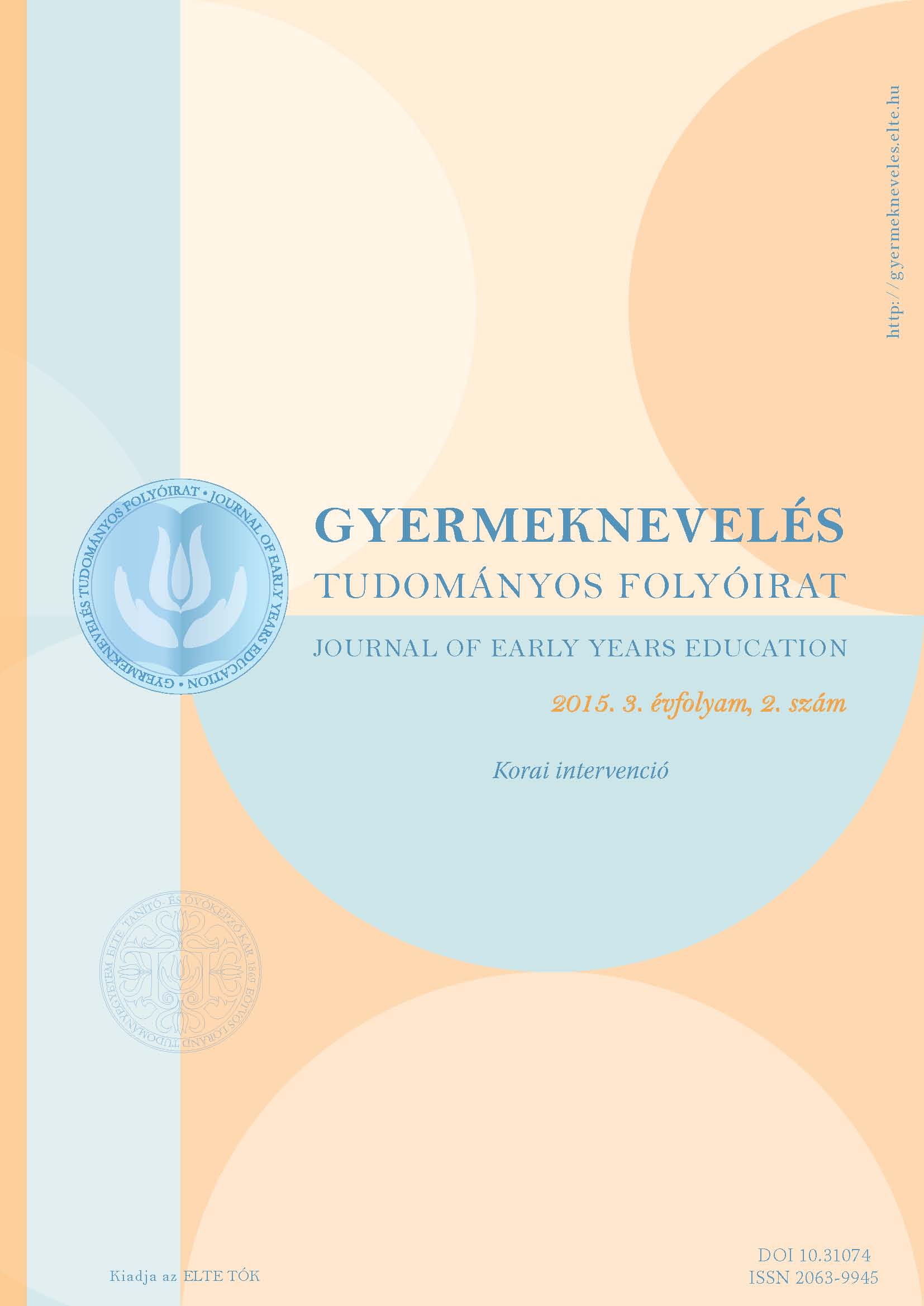A hallássérült kisgyermekek életútját meghatározó korai szűrés, hallókészülék-illesztés és a korai fejlesztés jelentősége
DOI:
https://doi.org/10.31074/gyntf.2015.2.131.142Keywords:
consequences of hearing impairment, overall neonatal screening, diagnostics and fitting of hearing aids, early develompent – early intervention, difficulties of the health care systemAbstract
In Hungary, the early intervention of hearing impaired infants follows the principles of the natural-verbal-oral therapy. Those families that choose early intervention for their children follow the natural speech development of hearing children and aim at acquiring oral speech for them.
The first years of life play a vital role in the aspect of the years to come. Early screening, diagnostics, choosing and fitting of hearing aids, the recognition of cochlear implantation as a necessity, interdisciplinary approach, all these are key essentials of early intervention and what comes after it. In addition to explaining the way leading to early intervention, the present study is also examining the cooperation between parents and therapists, together with the different aspects of counselling and guiding. It is also reflecting on the positive changes to come in the near future and the major difficulties of the health care system.
Downloads
Downloads
Published
How to Cite
Issue
Section
License
Copyright (c) 2015 Author

This work is licensed under a Creative Commons Attribution-NonCommercial-ShareAlike 4.0 International License.

